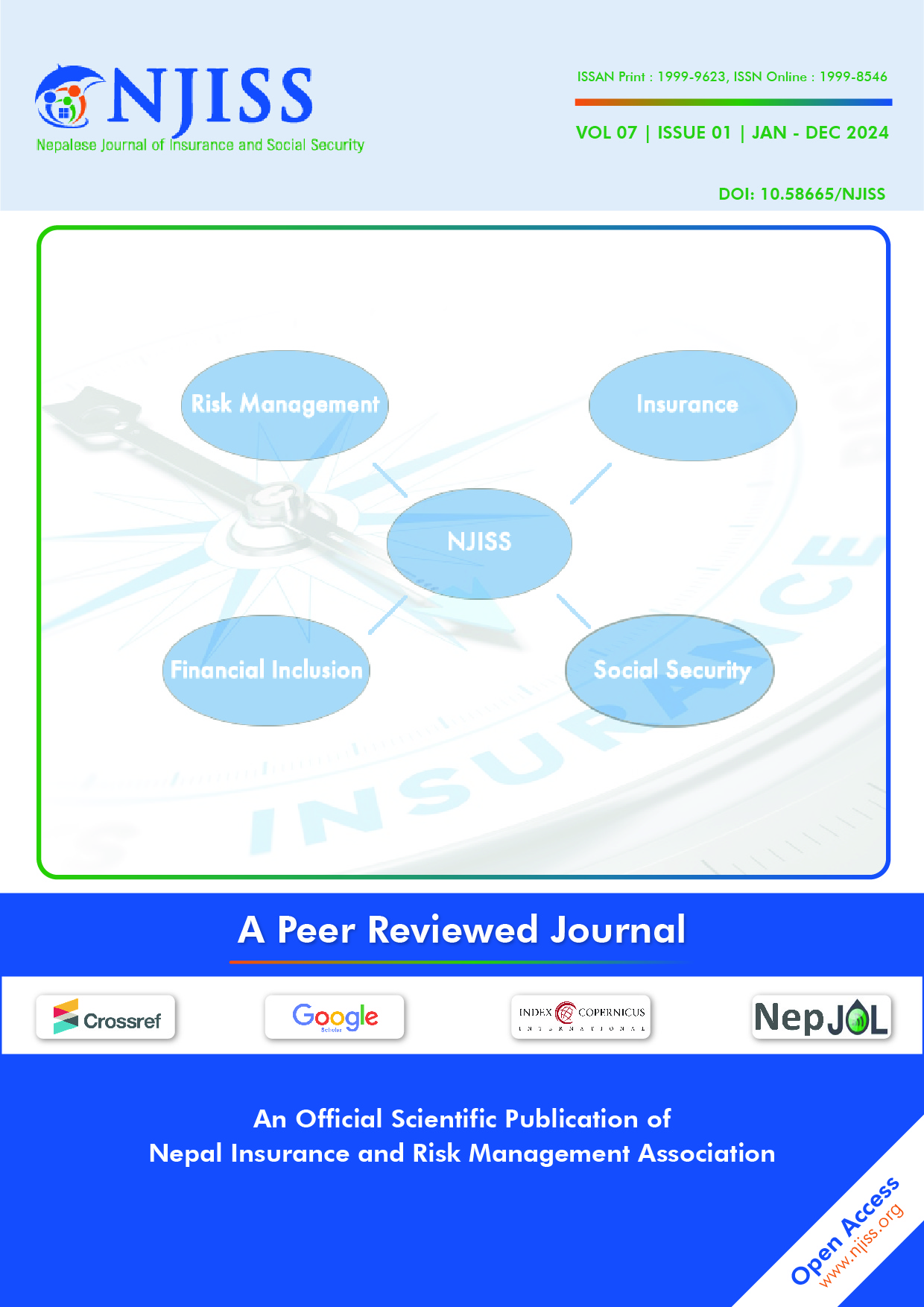Exploring the role of Eco-innovation in Nepalese SMEs for Corporate Sustainability
Keywords:
Corporate sustainability, eco-innovation, Nepalese Small and Medium enterprise (SMEs), socio-economic and environmentAbstract
Purpose: The purpose of this study is to explore the role of eco-innovation in Nepalese SMEs, specifically about corporate sustainability. The research aims to understand how eco-innovation is integrated into SMEs’ operations and to identify the drivers, barriers, and enablers of such practices in the Nepalese context.
Design/methodology/approach: This qualitative research employs a Transcendental Phenomenology approach. Data was collected through semi-structured interviews with SME stakeholders and focus group discussions. Purposive sampling was used to select participants, and the analysis followed Moustakas’ (1994) phenomenological method to identify themes and subthemes related to eco-innovation and corporate sustainability in SMEs.
Findings: The study identifies several themes, including the challenges SMEs face in implementing eco-innovation, such as resource constraints and regulatory barriers. It also explores the enablers, like educational initiatives and supportive policies, which can help SMEs overcome these challenges. Eco-innovation significantly contributes to corporate sustainability by addressing economic, social, and environmental concerns. The study offers practical insights into how SMEs can integrate eco-innovation into their business strategies for long-term sustainability.
Conclusion: The study highlights the importance of eco-innovation in Nepalese SMEs for corporate sustainability, despite challenges like cost, stakeholder awareness, and regulatory barriers, with leadership and organizational culture playing key roles.
Implications: This study contributes to the understanding of eco-innovation in emerging economies by emphasizing the roles of leadership, organizational culture, and supportive policies in driving corporate sustainability. It highlights the need for
awareness campaigns, financial incentives, and policy reforms to help Nepalese SMEs adopt eco-innovation practices and integrate sustainability into their business strategies.
JEL Classification: Q01, Q56, M14, L25
Downloads
Downloads
Published
How to Cite
Issue
Section
License
Copyright © Nepal Insurance and Risk Management Association

The articles in NJISS are licensed under a Creative Commons Attribution-NonCommercial 4.0 International License. This CC BY-NC license allows reusers to distribute, remix, adapt, and build upon the material in any medium or format for noncommercial purposes only, and only so long as attribution is given to the creator.
It includes the following elements:
BY - Credit must be given to the creator (authors)
NC - Only noncommercial uses of the work are permitted.

